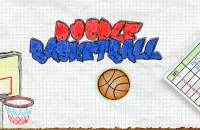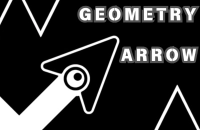Wordle
Wordle
Connecting to game server...
0% complete

Wordle
Click to start playing
🕹️ You May Also Like












Wordle
The viral daily word puzzle challenging players to guess a 5-letter word in 6 attempts. Use color-coded feedback to deduce the answer strategically.
Wordle is the viral word puzzle phenomenon that took the world by storm. Guess the hidden 5-letter word in just 6 attempts using the color-coded feedback system. Green letters are in the correct position, yellow letters are in the word but wrong position, and gray letters aren't in the word at all. With only one puzzle per day, each game becomes a special challenge to share with friends.
🎮 How to Play
- 1Type letters to form words
- 2Enter to submit guess
- 3Backspace to delete letters
💡 Game Tips
- 💡Start with words containing common vowels
- 💡Use elimination strategy with consonants
- 💡Pay attention to letter frequency
- 💡Think about word patterns and common endings
📚Complete Strategy Guide
Master Wordle with our comprehensive guide and pro tips
Basic Strategy
Wordle is the viral word puzzle phenomenon that challenges players to guess a hidden 5-letter word in just 6 attempts using a sophisticated feedback system. The game combines vocabulary knowledge with logical deduction, creating an engaging daily puzzle that has captivated millions worldwide. Success requires strategic word selection, efficient information gathering, and systematic elimination of possibilities.
Feedback System Mastery: Understanding Wordle's color-coded feedback is crucial for success. Green letters are correctly placed, yellow letters exist in the word but are in wrong positions, and gray letters don't appear in the target word at all. Each guess should be chosen to maximize the information gained from this feedback system.
Starting Word Strategy: Your opening guess sets the foundation for the entire puzzle. Effective starting words contain common vowels and consonants that appear frequently in English words. Popular choices include words with multiple vowels and common consonants like AUDIO, AROSE, or STARE, which provide maximum information about the target word.
Information Maximization: Each guess should be designed to gain maximum information about the target word. This means choosing words that test different letters rather than immediately trying to guess the answer. Early guesses should prioritize learning which letters are in the word and their positions.
Systematic Elimination: Use the feedback to systematically eliminate impossible words and narrow down possibilities. Keep mental or written track of which letters have been ruled out, which are confirmed but misplaced, and which are correctly positioned.
Advanced Tips
Letter Frequency Strategy: Understanding English letter frequency can guide word selection. Vowels (A, E, I, O, U) and common consonants (R, S, T, L, N) appear frequently in words and should be tested early. This statistical approach improves your chances of getting useful feedback quickly.
Pattern Recognition: Develop recognition of common English word patterns and letter combinations. Understanding typical consonant clusters (TH, ST, PR) and vowel patterns helps predict likely word structures from partial information.
Position-Specific Strategy: Different positions in 5-letter words favor different letters. For example, certain letters commonly appear at the beginning (S, C, B) while others frequently end words (S, E, D). Use this positional knowledge to make informed guesses.
Hard Mode Discipline: Playing in hard mode (using revealed clues in all subsequent guesses) forces more strategic thinking and prevents waste of information already gained. This constraint actually improves logical thinking skills.
Multiple Solution Management: When multiple valid solutions exist, choose guesses that distinguish between the possibilities rather than randomly picking one potential answer.
Level Walkthrough
Opening Move Analysis: Your first guess should establish the presence of common letters. Don't worry about finding the exact word immediately; focus on gathering information about vowels and frequent consonants.
Second Guess Optimization: Based on your first result, choose a second word that tests different letters while incorporating any green letters in their correct positions. Avoid repeating gray letters unless you're testing specific word patterns.
Mid-Game Deduction: Guesses 3-4 should focus on placing yellow letters in correct positions while testing remaining unknown letters. This is where logical deduction becomes most important.
Endgame Precision: Final guesses should be actual word attempts based on all gathered information. By this point, you should have enough clues to make educated guesses at the target word.
Pattern Completion: Use knowledge of English word structures to complete patterns suggested by your confirmed letters. Common endings and beginnings can guide final guesses.
Common Mistakes
Premature Guessing: Attempting to guess the target word too early wastes opportunities to gather more information. Focus on information-gathering in early guesses rather than trying to immediately solve the puzzle.
Repeated Letter Neglect: Forgetting that words can contain repeated letters (like SHEEP or CLASS) can lead to missing obvious solutions. Consider repeated letter possibilities, especially in later guesses.
Gray Letter Reuse: Using letters that have been marked gray wastes valuable guesses and provides no new information. Maintain discipline in avoiding eliminated letters.
Position Ignoring: Not utilizing the positional information from yellow letters leads to inefficient guessing. Always consider where yellow letters might fit in remaining positions.
Pattern Blindness: Missing common English word patterns or endings that would be obvious given the available information. Develop familiarity with typical word structures.
Statistical Analysis and Word Selection
Letter Frequency Distribution: Understanding the statistical frequency of letters in 5-letter English words can significantly improve your strategy. The most common letters in order are: E, A, R, I, O, T, N, S. Vowels appear in 97% of 5-letter words, making them essential to test early.
Optimal Starting Word Research: Studies have analyzed thousands of Wordle solutions to identify mathematically optimal starting words. SLATE, CRANE, and TRACE perform exceptionally well because they test high-frequency letters in common positions. These words typically eliminate 60-70% of possible solutions in one guess.
Position-Based Letter Frequency: Different positions favor different letters. Position 1 commonly features S, C, B, T, P. Position 5 frequently ends with S, E, D, Y, R. Middle positions (2-4) often contain vowels and liquid consonants (R, L). Use this knowledge to predict likely letter placements.
Double Letter Strategy: Approximately 31% of Wordle answers contain repeated letters. Common double letter words include those with double L (SKILL, STILL), double S (CLASS, GRASS), double E (SWEET, STEEL), and double O (GOOSE, LOOSE). Don't overlook these possibilities in later guesses.
Advanced Pattern Recognition Techniques
Common Word Endings: Recognize frequent 5-letter word endings to speed up solving. Popular endings include -ING, -ION, -TION (truncated), -LY, -ER, -ED, -AL, -IC. When you identify letters that suggest these patterns, consider words that fit these common structures.
Consonant Cluster Identification: Understanding common consonant combinations helps predict word structure. Frequent clusters include ST-, SP-, SC-, -NT, -ND, -ST, -CH, -TH, -SH. These patterns appear regularly in English and can guide letter placement decisions.
Vowel Pattern Analysis: Different vowel arrangements create distinct word families. Patterns like A-E (FRAME, SPACE), O-E (PHONE, STONE), I-E (PRIME, SHINE) are extremely common. Identifying the vowel pattern early helps narrow possibilities significantly.
Morphological Awareness: Understanding word formation helps predict structures. Many words have prefixes (UN-, RE-, IN-) or suffixes (-ED, -ER, -LY). Recognizing these patterns from partial information accelerates solving.
Psychological Aspects and Mental Game
Pressure Management: Wordle's daily limit creates unique pressure compared to unlimited puzzle games. Develop strategies to stay calm and think clearly when facing your final guesses. Take breaks between guesses to avoid rushed decisions.
Confirmation Bias Avoidance: Don't get locked into early theories about the word. Stay flexible and consider alternative possibilities even when one solution seems obvious. This mental flexibility prevents tunnel vision that leads to failures.
Pattern Matching vs. Systematic Thinking: Balance intuitive pattern recognition with systematic logical elimination. Both approaches are valuable, but systematic thinking provides more consistent results, especially in difficult puzzles.
Error Recovery Strategies: When you realize you've made a suboptimal guess, don't panic. Use the information gained to inform better decisions. Even "bad" guesses provide valuable information about what the word isn't.
Daily Puzzle Optimization
Consistent Starting Strategy: Develop a reliable 2-3 word opening sequence that you use consistently. This builds muscle memory and ensures you gather similar information patterns daily, making subsequent decisions easier.
Time Management: Unlike timed puzzles, Wordle allows unlimited thinking time between guesses. Use this advantage to thoroughly consider all possibilities before making each guess. Rushing leads to mistakes.
Streak Maintenance: Protecting your solving streak requires balancing aggressive play (trying to solve quickly) with conservative play (ensuring you solve at all). Prioritize solving over speed when your streak is at stake.
Learning from Failures: When you don't solve a puzzle, analyze what went wrong. Was it poor letter choice, missed patterns, or psychological pressure? Use failures as learning opportunities to improve future performance.
Community and Competitive Elements
Sharing Strategy: The daily communal aspect of Wordle creates opportunities to discuss strategies. Engage with others to learn new approaches, but avoid spoilers that ruin the puzzle for others.
Score Optimization: Some players focus on minimizing average guesses needed. This requires aggressive information-gathering strategies and willingness to take calculated risks on early solutions.
Variation Games: Understanding core Wordle strategy helps with variations like Dordle (two words), Quordle (four words), or Absurdle (adversarial). The fundamental principles transfer while requiring adaptation to new constraints.
Conclusion: Mastering Daily Word Puzzles
Wordle represents the perfect balance of accessibility and depth in puzzle design. While anyone can play, consistent success requires developing systematic strategies, understanding language patterns, and maintaining disciplined thinking under pressure. The daily nature creates a unique gaming experience that rewards both analytical thinking and vocabulary knowledge.
Success in Wordle isn't just about knowing words—it's about efficient information gathering, logical deduction, and strategic thinking. Master these skills, and you'll not only improve your Wordle performance but also develop cognitive abilities that transfer to many other problem-solving contexts.
The five-letter grid awaits your next guess. Will you solve today's puzzle efficiently?
Score Optimization
Guess Minimization: Achieving solutions in fewer guesses demonstrates efficient information gathering and logical deduction skills. Focus on maximizing information from each guess rather than random attempts.
Streak Building: Maintaining long solving streaks requires consistent application of good strategy rather than relying on luck or vocabulary alone. Develop systematic approaches that work reliably.
Hard Mode Mastery: Successfully playing in hard mode shows advanced strategic thinking and constraint management. The additional restrictions force more efficient information use.
Average Improvement: Tracking and improving your average number of guesses over time demonstrates developing strategic skills. Aim for consistent performance rather than occasional lucky quick solves.
Failure Rate Reduction: Minimizing unsolved puzzles requires maintaining discipline and systematic approaches even when puzzles seem difficult. Don't abandon strategy under pressure.
Final Pro Tips
Word List Familiarity: While you don't need to memorize Wordle's word list, understanding that it uses common 5-letter words helps guide guesses toward likely solutions rather than obscure possibilities.
Mental Note-Taking: Develop systems for tracking eliminated letters and confirmed positions, especially during complex puzzles. Some players benefit from writing down information between guesses.
Pressure Management: Daily pressure to maintain streaks can lead to poor decision-making. Stay calm and apply your systematic approach rather than rushing or overthinking.
Learning from Failures: Analyze unsuccessful attempts to understand where your strategy broke down. Failed puzzles often provide the best learning opportunities for improving future performance.
Community Engagement: Discussing strategies with other players can reveal new approaches and techniques. The Wordle community has developed many effective strategic insights.
Variant Practice: Playing Wordle variants with different rules or word lengths can improve general word puzzle skills that transfer back to the original game.
Vocabulary Development: While strategy is more important than vocabulary size, learning new 5-letter words expands your solution possibilities and pattern recognition abilities.
Consistency Over Perfection: Focus on developing reliable solving strategies rather than seeking perfect performance. Consistent application of good strategy yields better long-term results than inconsistent brilliant guesses.
Wordle demonstrates how simple rules can create deep strategic gameplay, combining vocabulary knowledge with logical thinking to create daily challenges that exercise both linguistic skills and deductive reasoning through elegant feedback mechanisms and constrained problem-solving opportunities.